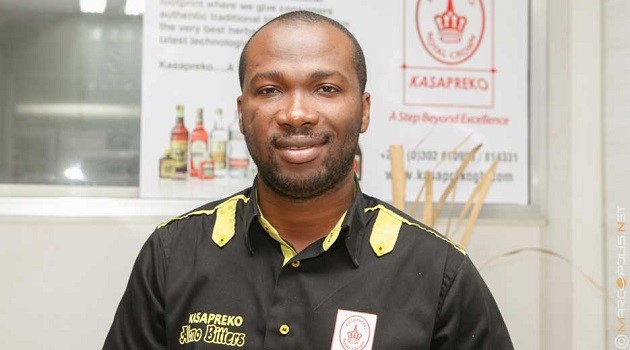… seeks to leverage AfCFTA to increase export sales by 300% in 5yrs
Chief Executive Officer of Kasapreko Company Limited, Richard Adjei has revealed that his firm is open to strategic business partnerships and investor funding, if it “makes economic sense” and drives the growth of the company.
This represents a departure from the über-conservative posture previously assumed by the largest indigenous beverage manufacturer in the country, where it had stated its desire to remain a wholly family-owned business and offered an insight into the direction the company is heading.
Speaking to the B&FT in a wide-ranging interview, Mr. Adjei suggested that Kasapreko had never been averse to partnerships and “sensible investor funding” but desired to grow the company traditionally and attain a position where negotiations on these matters could be made with a strong footing.
Responding to the possibility of seeing Kasapreko listed on the Ghana Stock Exchange (GSE) in the short-term, he offered a rather gloomy commentary that would make for uncomfortable reading by the operators of the nation’s bourse.
“We have not seen the stock market being as vibrant as other markets but I would say our position to stay wholly a family business has changed but certainly we are looking forward to other investors into the company from government, pension funds to Ghanaian shareholders to foreign shareholders … a family business can only grow so much,” he said.
He however offered some clarification, noting that the company’s position with regard to the GSE is solely a reflection of the current state of affairs and not a stone-cast one, adding that viable partnerships with companies already listed on the exchange would be gladly welcomed.
AfCFTA
The CEO also offered insight into some current partnership arrangements by the company, as he touted Kasapreko’s preparedness in anticipation of the commencement of the Africa Continental Free Trade Agreement (AfCFTA), revealing that the company is looking to expand beyond its engagements in the sub-region and South Africa to Central and East Africa.
To effectively do this, he noted, Kasaproko is not seeking to immediately set up manufacturing units in the said regions as it is not economically viable. Rather, the company will pursue competitive advantage by relying largely on contract-packaging, or co-packing; an arrangement that outsources some production and packaging to an already established manufacturer, who oftentimes is operating below capacity.
He expressed hope that some of the prevailing constraints which impede trade, even within the same sub-regional economic bloc, will be addressed. Highlighting some of them, he said: “sometimes there’s a tussle with some of these countries as a lot of them also do not have significant manufacturing within their countries, so bringing imports duty-free affects them as duties constitute almost 80% of their revenues.
There are also shipping issues, logistic issues within Africa. Shipping within West Africa can sometimes take up to three to four months, whereas it is three weeks to Europe. It is the same with the cost of shipping which can be double what it is to Europe, when shipping within West Africa. Some of these logistics issues need to be checked out to make sure that doing business within Africa is easier for those of us that’ll be exporting.”
Mr. Adjei however expressed optimism, particularly for businesses who are already engaged in international trade.
Using Kasapreko as an example, he stated: “for those already importing our products, certainly, it is even going to be cheaper for them and hopefully, sales will increase within the sub-region. We anticipate that we would be able to increase our export sales by about 300% over the next five years, so we are looking forward to the start.”
He admonished countries to eschew a protectionist mindset and embrace the possibilities of AfCFTA, by focusing on specialsation and expressed belief that the lapses in sensitisation will be addressed as the agreement takes off.










